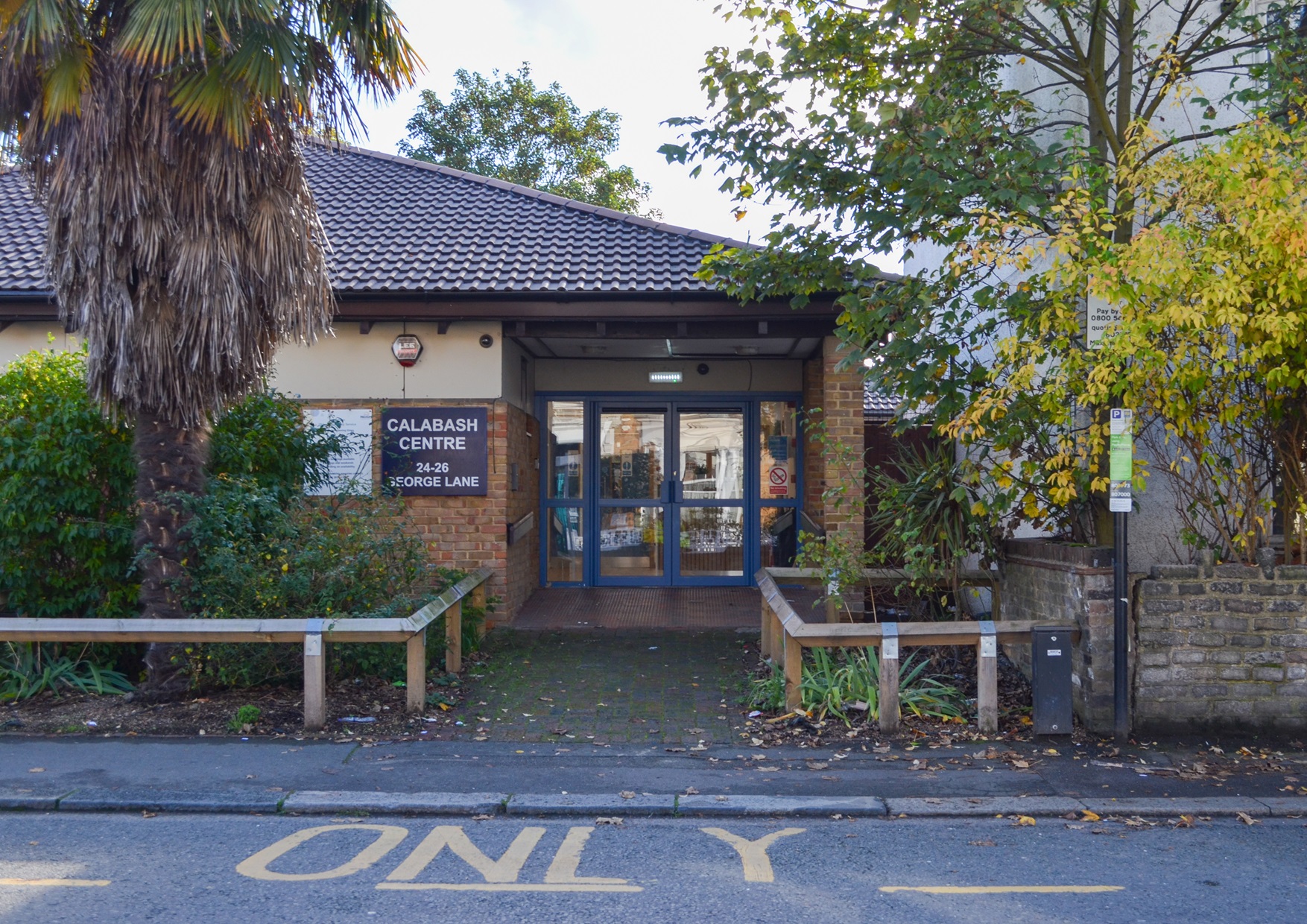
“As far as I am aware, it is one of the few places in south London that actually started as a centre for African Caribbean people and it's still standing, it’s still going; there lots of groups within the borough, but they are all renting a church Hall or something… The fact that the building is still here is a sign of the strength and resilience of our elders that the group is still there, the building is still there and in terms of our history…we are still here, we are not going anywhere…people may come and go but that group isn’t going anywhere just yet!”
- Naomi Leatham
On Saturday, 17th September 2019, nearly 100 people gathered, outside the Calabash building in Lewisham to protest Lewisham Council's proposed changes to the building’s services. The council’s plan would see the three day services for older adults delivered at the Calabash Centre in Lewisham (by Hestia Housing and Support), Cedar Court in Grove Park (by Housing 21) and Cinnamon Court in Deptford (by Housing 21), recommissioned as a single service to save money and, in doing so, threatening the Calabash’s existence. Protestors expressed concern over the potential negative impact these changes would have on the local Black community, arguing that the council had failed to recognise the original purpose of the Calabash and the needs of Lewisham's BAME population.
Founded by Cecil Murray in 1985, the Calabash African Caribbean Elders group was established in response to the lack of support and culturally sensitive spaces for Black elders, who often found council day centres unwelcoming. The club was set up in Catford and was opened by Les Eytle, Lewisham’s first Black mayor. Named after the Calabash tree, the Calabash Centre became a space for Caribbean elders to socialise, share meals, participate educational, physical and mental health activities.
“If we don't keep centres like this going, where our elders and younger people can interact with one another, we will lose all of this. One of the things that we in our constitution have said is that we want to work with younger people, and that's something that we're looking to try and develop more in the coming year…Given the amount of work that's gone into setting up these groups like the Calabash and keeping them running, I think it would just be a horrendous thought that by the time you or I get to that point of needing this sort of resource, it won't be there.”
- Naomi Leatham
The council also argued that a specific and separate service for older adults from Black and Minority Ethnic communities was no longer necessary. As part of making the centre more inclusive to other community members, the council also proposed a name change for the building, which was strongly opposed by the local Black community.
The black community, key stakeholders, interest groups, and individual response was to lobby the council by participating in the short council constitution process which accidentally excluded some key community groups, such Lewisham Pensioner Forum (LPF) who was managed by Tracey Jarrett, at the time (2016 – 2022), Carers for Lewisham, amongst others. Demonstrations, an LPF petition, a formal ‘Representation to Mayor and Cabinet, and an appeal to the Healthier Communities Select Committee where Joan Anim-Addo delivered an amazing presentation followed. But it was clear to many that the decision had already been made. The community felt that the council’s actions ignored the Calabash’s historical significance, particularly its ties to the Windrush Generation. They worried that the loss of a safe space for those same elders could expose them to racism, while the name change would further strip away the history of how the building came to being and the purpose it was created for.
Since the building opened, the black community has used this space for conferences, weddings, christening, funerals, Saturday schools, place of worship, party, dance, domino’s clubs, social clubs, youth club and it has become a safe place for the black community, a community asset, contributing to the well-being of black community living in Lewisham. The Calabash Caribbean Elder group, hosted at the centre since its opening, is now run and managed by Naomi Letham, and meets twice a week, supporting the most vulnerable in our community.
“The fight for Calabash is one that we can’t avoid to lose…The fact still remains Racism is prevalent and is running rampant on the streets of London, in our community, as recently times have shown. If we do not protect these spaces we will continue to be dispossessed of them to the detriment of our community, the black community will continue to be disadvantaged by the lack of available spaces to hire and use.”
- Tracey Jarrett